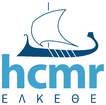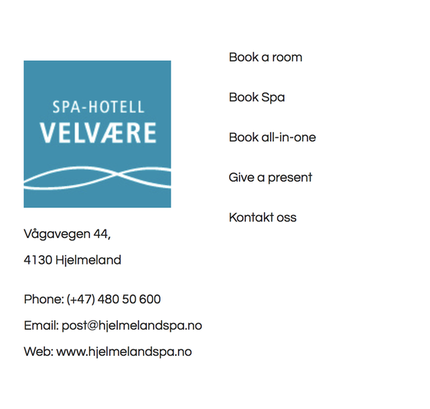Atlantic halibut KNOW-HOW TRANSFER WORKSHOP
|
The Atlantic halibut is the world’s largest flatfish and can attain a weight of 300 kg and a length of 4 m. It is a highly prized fish in many European countries, but availability of wild fish is decreasing and Atlantic halibut is classified as endangered on the IUCN red list. Even though the Norwegian stocks have increased over the past ten years and are viable, fisheries are under strict regulation. This means that there is a higher demand in the market for halibut, which can be met by fisheries alone. Cultured halibut is not freely available for “ordinary” customers due to low annual production but has a good reputation as an excellent product. An example is the choice of Norwegian cultured halibut as one of the ingredients in the Bocuse d’Or chef competitions.
Registration for the workshop was free of charge, and the venue of the workshop was the Hjelmeland Spa-Hotel, Hjelmeland, Norway
Registration for the workshop was free of charge, and the venue of the workshop was the Hjelmeland Spa-Hotel, Hjelmeland, Norway
Presentations given at the workshop
|
| ||||||||||||
|
| ||||||||||||
|
| ||||||||||||
|
| ||||||||||||
|
| ||||||||||||
|
| ||||||||||||
| haldorson_o_historical_perspective.pdf | |
| File Size: | 236 kb |
| File Type: | |
Technical Manual for halibut |
| ||||||
Agenda and Presentations (Tuesday, 11 September 2018)
8:30 – 9:00 Welcome and registration
9:00 – 9:15 The DIVERSIFY project (Constantinos C. Mylonas, Coordinator, Hellenic Centre for Marine Research, Greece)
9:15 – 9:45 Development of aquaculture of Atlantic halibut – a historical perspective (Ólafur Halldórsson, Akureyri, Iceland)
9:45 - 10:00 Currentstatus of Atlantic halibut culture in Norway and world-wide (TBA).
10.00 - 10.30 Branding andmarketing of Atlantic halibut(Magnus Skretting, CEO Sterling White Halibut)
10.30 - 11.00 Coffee break
11:00 - 11:20 Reproduction and genetics:GnRHa induction of spawning in female Atlantic halibut (Constantinos C. Mylonas)
11:20 - 11:40 Reproduction and genetics: Reproductive performance of farmed and wild-caught halibut in aquaculture (Birgitta
Norberg, Institute of Marine Research (IMR))
11:40 - 12:10 Nutrition: Development of the gut and digestion in Atlantic halibut (Ivar Rønnestad, University of Bergen)
12:10 - 13:00 LUNCH (Compliments of DIVERSIFY)
13:00 - 13:20 Nutrition: Early weaning (Kristin Hamre, IMR)
13:20 - 13:40 Larval husbandry: Protocols for RAS in yolk sac and first feeding larvae (Torstein Harboe, IMR)
13:40 – 14:00 Larval husbandry: Metagenomics in RAS systems for halibut larvae (Audun Nerland, University of Bergen and
IMR)
14:00 – 14:20 Larval husbandry: Industry applications and challenges (Børre Erstad, SWH)
14:20 – 14:50 Fish health: Development of the immune system and vaccine development (Sonal Patel, Vaxxinova and IMR)
14:50 – 15:20 Coffee break
15:20 – 16:00 New challenges in Atlantic halibut aquaculture research and development (TBA)
16:00-16:30 Future development – from the perspective of salmon farming (TBA)
16:30-17:00 Panel discussion on bottlenecks and future challenges to improve production (Chair: Rocio Robles,
Dissemination leader, CT-AQUA, Spain)
17:00-17:15 Closing (Birgitta Norberg)
19:00 Dinner at Hjelmeland Hotel & Spa
9:00 – 9:15 The DIVERSIFY project (Constantinos C. Mylonas, Coordinator, Hellenic Centre for Marine Research, Greece)
9:15 – 9:45 Development of aquaculture of Atlantic halibut – a historical perspective (Ólafur Halldórsson, Akureyri, Iceland)
9:45 - 10:00 Currentstatus of Atlantic halibut culture in Norway and world-wide (TBA).
10.00 - 10.30 Branding andmarketing of Atlantic halibut(Magnus Skretting, CEO Sterling White Halibut)
10.30 - 11.00 Coffee break
11:00 - 11:20 Reproduction and genetics:GnRHa induction of spawning in female Atlantic halibut (Constantinos C. Mylonas)
11:20 - 11:40 Reproduction and genetics: Reproductive performance of farmed and wild-caught halibut in aquaculture (Birgitta
Norberg, Institute of Marine Research (IMR))
11:40 - 12:10 Nutrition: Development of the gut and digestion in Atlantic halibut (Ivar Rønnestad, University of Bergen)
12:10 - 13:00 LUNCH (Compliments of DIVERSIFY)
13:00 - 13:20 Nutrition: Early weaning (Kristin Hamre, IMR)
13:20 - 13:40 Larval husbandry: Protocols for RAS in yolk sac and first feeding larvae (Torstein Harboe, IMR)
13:40 – 14:00 Larval husbandry: Metagenomics in RAS systems for halibut larvae (Audun Nerland, University of Bergen and
IMR)
14:00 – 14:20 Larval husbandry: Industry applications and challenges (Børre Erstad, SWH)
14:20 – 14:50 Fish health: Development of the immune system and vaccine development (Sonal Patel, Vaxxinova and IMR)
14:50 – 15:20 Coffee break
15:20 – 16:00 New challenges in Atlantic halibut aquaculture research and development (TBA)
16:00-16:30 Future development – from the perspective of salmon farming (TBA)
16:30-17:00 Panel discussion on bottlenecks and future challenges to improve production (Chair: Rocio Robles,
Dissemination leader, CT-AQUA, Spain)
17:00-17:15 Closing (Birgitta Norberg)
19:00 Dinner at Hjelmeland Hotel & Spa
Field Trip (Wednesday, 12 SEPTEMBER 2018)
09:30-15:00 Boat trip to the production sites of Sterling White Halibut (lunch included)
The organizer
Birgitta Norberg (+47 90537176; [email protected])
Birgitta Norberg (+47 90537176; [email protected])









